The title of Dr. Therese Willkomm’s forthcoming book concisely describes what she does — “Make Stuff and Love People.” Dr. Willkomm, the director of New Hampshire’s State Assistive Technology Program with the Institute on Disability at the University of New Hampshire (UNH), has spent more than 25 years creating assistive technology solutions for people with disabilities. In addition to authoring 22 publications on the matter, she has presented in 46 states, 10 foreign counties and three U.S. territories. She’s renowned worldwide as “the MacGyver of AT” for her ability to invent and problem-solve in a matter of moments.
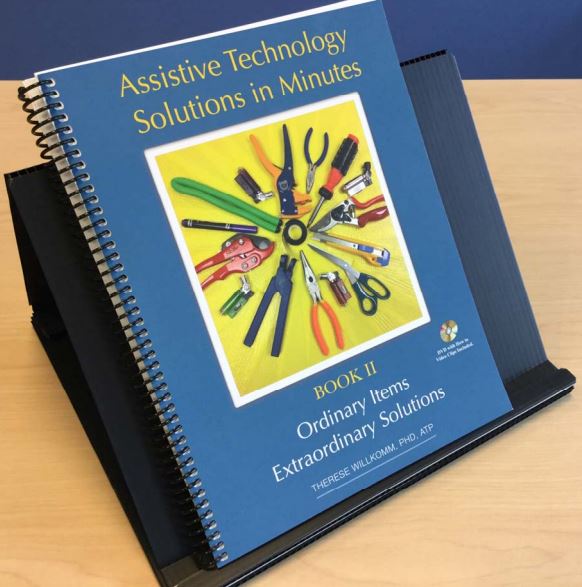
Earlier this month, Dr. Willkomm visited INDATA to lead a training session about low-tech accommodation solutions, “Creating Assistive Technology Solutions in Minutes.”
“Assistive technology may seem foreign or far from reach to many people,” said Brian Norton, director of assistive technology at Easterseals Crossroads. “Dr. Willkomm shows how you don’t always have to spend hundreds of dollars on state-of-the-art devices. You can easily turn everyday, household items into pieces of assistive technology. Dr. Willkomm is a true assistive technology champion. Her work helps people with disabilities all across the globe see that countless solutions are well within their reach. That’s inspiring and empowering. We’re thrilled to have her involved in our efforts here.”
Finding Magic in the Mundane
Like the inventive action hero at the center of the TV series “MacGyver,” Dr. Willkomm can turn something simple like a paper clip into a powerful tool. In fact, one of her many examples of making ordinary items extraordinary is the transformation of a paper clip into a QR code dot maker by bending and cutting it into a straight point and attaching it to a piece of corrugated plastic.
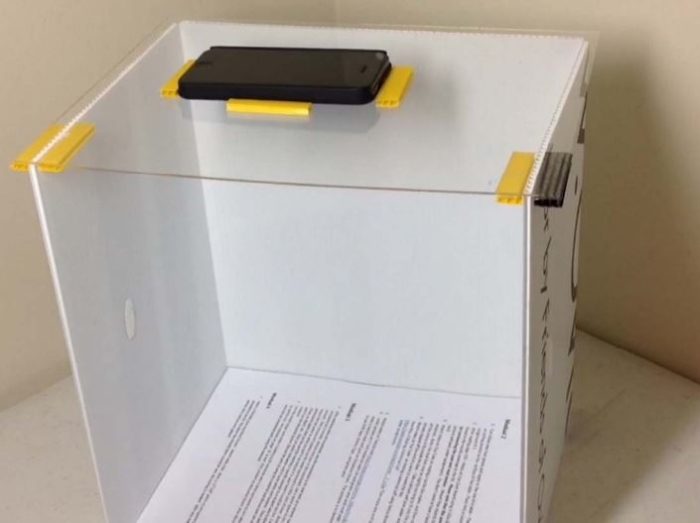
Speaking of which, Dr. Willkomm has discovered it’s possible to make more than 130 pieces of assistive technology from the corrugated plastic typically used for political campaign signs. Corrugated plastic-made solutions include iPad stands, portable scan and read stations, hands-free sandwich holders, and the list goes on.
Another versatile type of plastic is InstaMorph, which can be molded to make all sorts of assistive technology devices including key turners, stylus grips, spring-loaded scissors and dog treat dispensers. You name it.
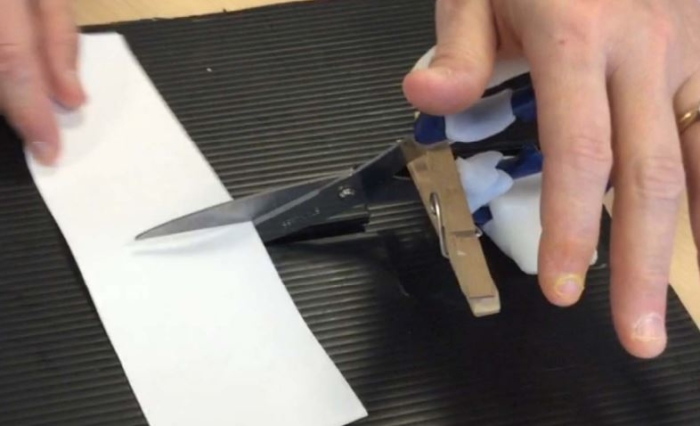
But you can also turn something even simpler, like a microwavable plate, into a lazy Susan, a suction cup, a wheelchair mount — there’s seemingly no end to the possibilities!
Dr. Willkomm wrote two books on this subject, “Assistive Technology Solutions in Minutes: Make a Difference Today” and “Assistive Technology Solutions in Minutes II: Ordinary Items, Extraordinary Solutions.” Both are brimming with hundreds of color photographs detailing innovative fabrication techniques and step-by-step instructions for creating AT solutions for home, school, work and recreational activities. (Her third book is on the way!)
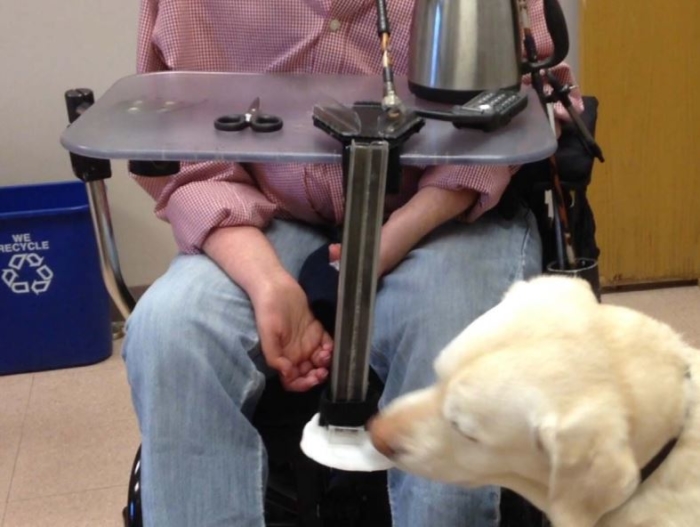
Dr. Willkomm also has thousands of videos on YouTube that show viewers how to become MacGyvers in the AT field just like her. The solutions she creates benefit people from all walks of life — those with vision impairment, communication impairment, attention deficit, physical and intellectual disabilities, etc.
Tearful Triumphs
Dr. Willkomm’s assistive technology solutions empower people with disabilities to overcome everyday challenges with everyday materials. It’s creative, rewarding work.
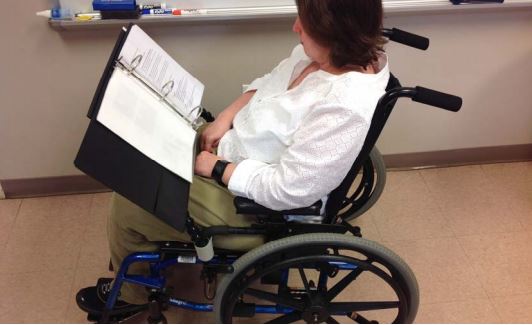
“I essentially get paid to play,” Dr. Willkomm said. “Experimenting and creating extraordinary solutions out of ordinary items is great fun. It’s so exciting when I can come up with a solution that enables somebody to do something they could never do before. Assistive technology puts everyone in the same boat, allowing them to break barriers and access the world so much more easily. I want people with disabilities to realize how many pieces of assistive technology are right at their fingertips. My work is about making stuff and loving people.”
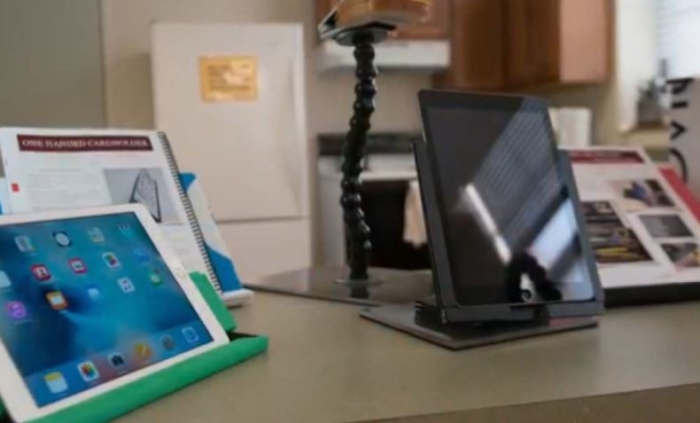
Dr. Willkomm recalls many “tearful moments” in which she got to witness someone overcoming an enormous obstacle with a simple solution. One that stands out in her memory is an artist who struggled to draw and paint after sustaining a spinal cord injury. When the Apple Pencil was released, she wrapped an industrial twist tie around it to help him grip it, and he started making beautiful art again. “Every day is different,” she said. “People have all sorts of challenges. It’s an honor to help them along their journey to becoming more independent.”
